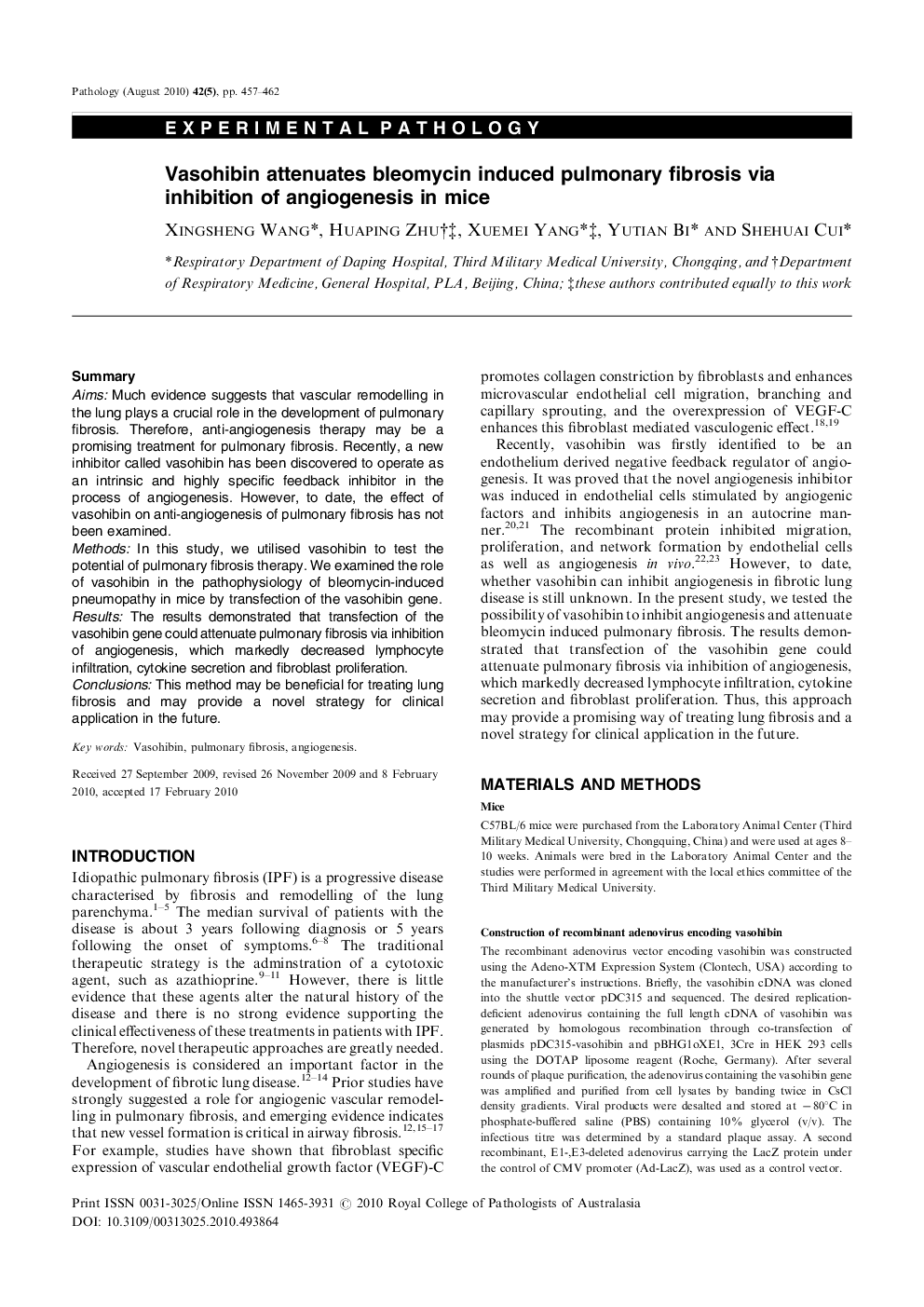| Article ID | Journal | Published Year | Pages | File Type |
|---|---|---|---|---|
| 106291 | Pathology | 2010 | 6 Pages |
SummaryAimsMuch evidence suggests that vascular remodelling in the lung plays a crucial role in the development of pulmonary fibrosis. Therefore, anti-angiogenesis therapy may be a promising treatment for pulmonary fibrosis. Recently, a new inhibitor called vasohibin has been discovered to operate as an intrinsic and highly specific feedback inhibitor in the process of angiogenesis. However, to date, the effect of vasohibin on anti-angiogenesis of pulmonary fibrosis has not been examined.MethodsIn this study, we utilised vasohibin to test the potential of pulmonary fibrosis therapy. We examined the role of vasohibin in the pathophysiology of bleomycin-induced pneumopathy in mice by transfection of the vasohibin gene.ResultsThe results demonstrated that transfection of the vasohibin gene could attenuate pulmonary fibrosis via inhibition of angiogenesis, which markedly decreased lymphocyte infiltration, cytokine secretion and fibroblast proliferation.ConclusionsThis method may be beneficial for treating lung fibrosis and may provide a novel strategy for clinical application in the future.
